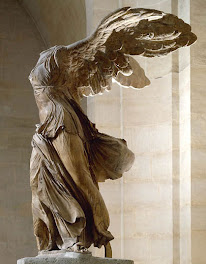"Beraun" es la casa solariega del S.XVI de mis tios abuelos en Irún. Mi tio, hermano de mi abuelo materno, era escritor y mi tia era hija del pintor Salís (época de la "España Negra", Regoyos, etc.)que a su vez tambien fue una gran escultora. Cuando era niña, me encantaba ir a esa casa y perderme por sus estancias enormes. Recuerdo, cuando despistada, entraba en lo que había sido el estudio del pintor, me sobrecogía con su enormidad. Paredes altísimas, techo de cristal, y un gran piano de cola en el centro de la estancia. Salía rápidamente toda acongojada. En esa casa aún viven sus hijos, primos de mi madre, todos ya ochentañeros. Un hijo y cuatro hijas. Dividieron la casa en varios apartamentos y todos viven juntos pero no revueltos. Ahora bien, son un caso. La mayor, soltera, tiene 85 años pero que ha vivido lo suyo. Dos ya viudas con hijos y nietos, una sigue casada y el hermano, separado. No aparentan para nada su edad, de hecho muchas veces les he dicho que en Beraun debe de existir la fuente de la juventud. Todas aparentan muchísimos años menos de los que tienen (sin operaciones) y tambien de espíritu. Hace dos años, mi hermano, mi cuñada y una amiga mia estuvimos en Irún. Ibamos a comer todos los dias con ellas, en una de estas comidas, la mas joven (78 ) que estaba disfrutando de unos dias con su nieto que había venido de Paris, tuvo una discusión con su hermana mayor (85) debido a que despues de comer nos ibamos a San Sebastián y el nieto quería venir con nosotros. Su abuela no quería desprenderse de él. Entonces la mayor le dijo "no seas así, déjale que se vaya con ellos que disfrutará más que estar contigo todo el dia" entonces ella le respondió "¡claro! como tu no has tenido hijos no sabes lo que es. Espera a que los tengas..." Como digo, son un caso.
"Beraun" is a beautiful old house dating back to the Sixteenth Century in Irún. It belonged to my great-uncle and aunt. My uncle, my maternal grandfather's brother, was a writer and my aunt was the daughter of a famous Spanish painter, Salís, of the "Black Spain" movement that included painters such as Regoyos, etc. She was also a very good sculptress. When I was a child I used to love going to that house. I used to love to explore its great rooms. Whenever I got lost and went to the large room that had been the artist's studio I was petrified with its tall walls, cristal roof and huge piano in the center. I rushed out, very frightened. In that house their children still live, a son and four daughters. The house has been divided into different apartments so they all live together but not "mixed". All of them are in their eighties. The oldest (85) is single but has lived her life quite well. Two are widows with children and grandchildren, one is still married and the son is separated. All of them are in their eighties, however, they don't look it whatsoever. As a matter of fact, I've always said that in "Beraun" they must have the fountain of youth. They're quite something. Very young-looking (without operations) and very young in spirit also. Two years ago, my brother, my sister-in-law, a friend and I went to Irún. We had lunch with them almost every day. One day, that we were having lunch, the youngest of the sisters (78) was enjoying a visit from one of her grandsons who had come from Paris, she had an argument with her older sister (85) because her grandson wanted to go with us to San Sebastian after lunch and she didn't want to let him go. Her older sister said: "Let him go, he'll have a better time than staying with you here...for God's sake..." Her sister answered: "Well, you just don't know what it's like to have children... wait 'till you have one..." As I say, they're quite something...






























